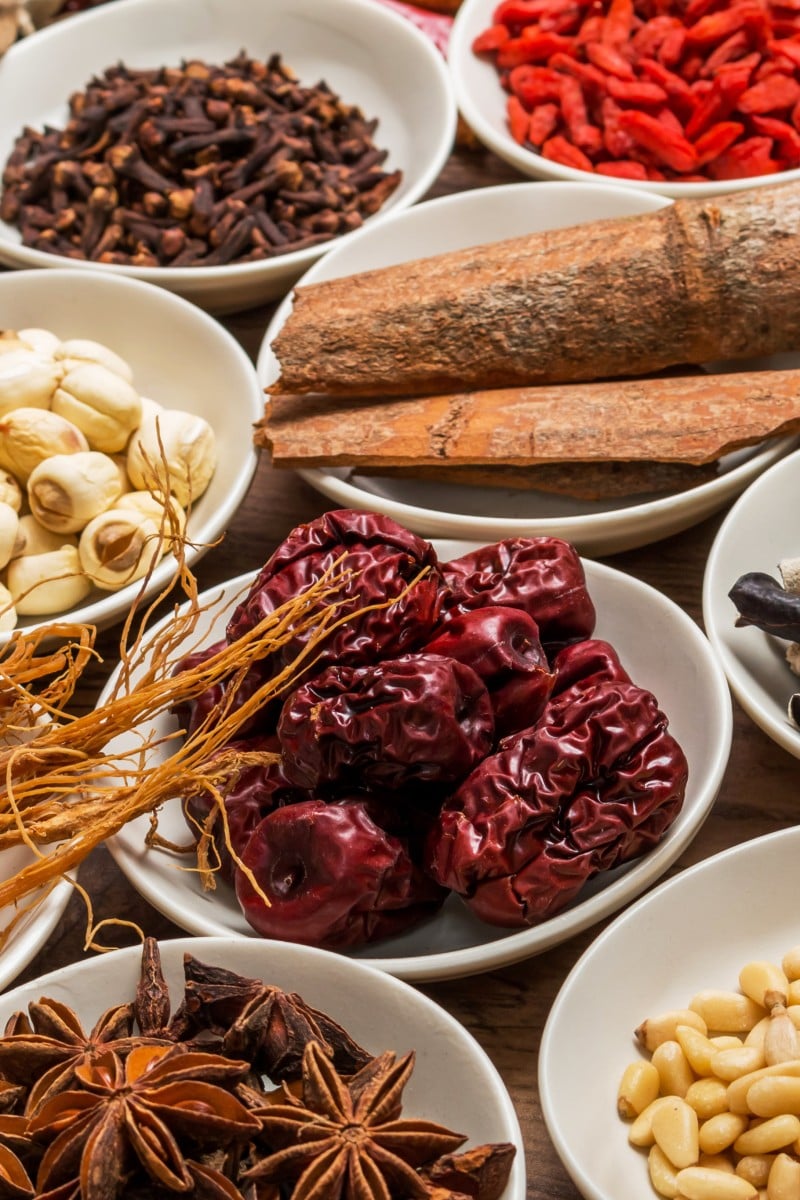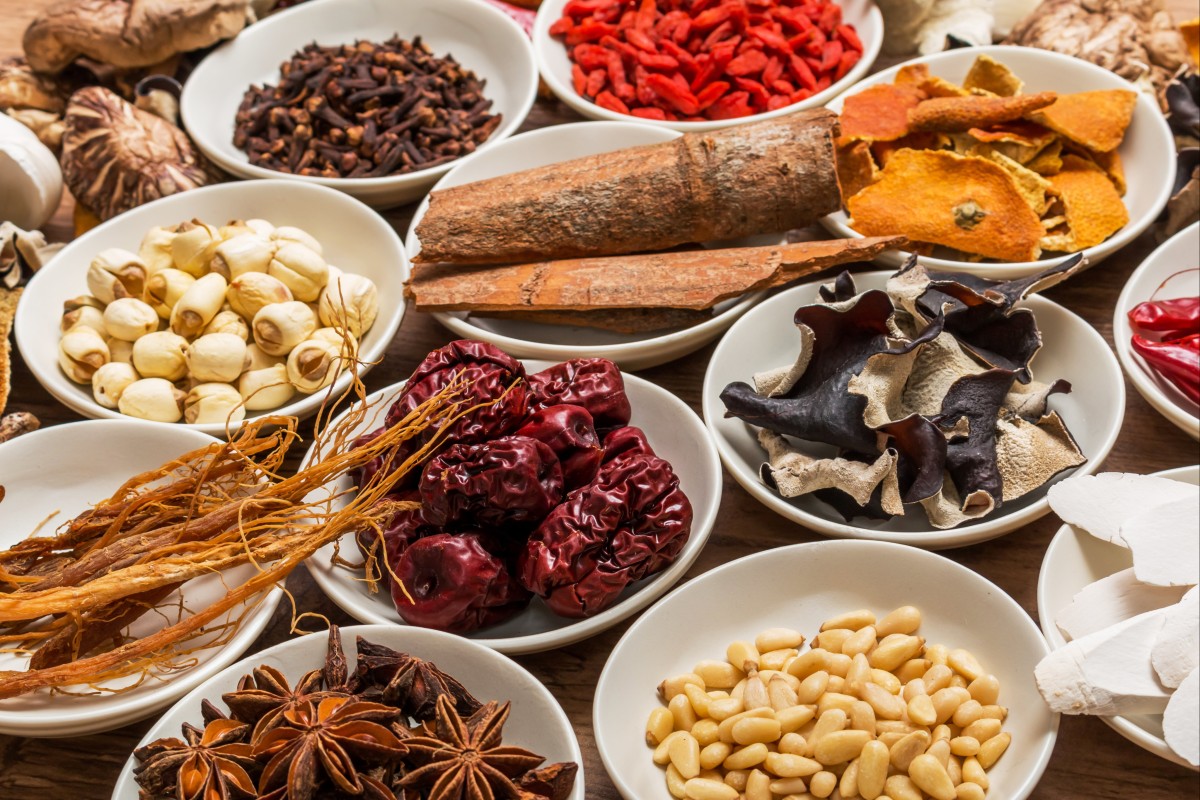
Your Voice: Hong Kong’s herbal tea culture – how traditional Chinese medicine is modernised for a new generation
- One student shares about what she learned on her visit to Lui Seng Chun, a historic building in Sham Shui Po converted into a Chinese medicine healthcare centre
- Other readers discuss why the city needs more independent book shops like Boundary Bookstore and give advice for improving mental health
 Herbal tea has officially been selected as part of Hong Kong’s intangible cultural heritage. Photo: Shutterstock
Herbal tea has officially been selected as part of Hong Kong’s intangible cultural heritage. Photo: ShutterstockHave something to say? Send us a letter using this Google form.
Brewing Hong Kong’s herbal tea culture
Anson Ng Wai-yan, Holy Angels Canossian School
Herbal tea, or leung cha in Cantonese, is a concoction of medicinal herbs based on traditional Chinese medicine formulas. In 2006, herbal tea was selected as part of Hong Kong’s intangible cultural heritage.
Herbal tea culture has expanded across different age groups in the city, from teens to the elderly. It is a fundamental part of traditional Chinese medicine and has long been used to help prevent and treat illness by minimising the body’s excessive heat and dampness.
To explore this culture more deeply, I went with my school to visit Lui Seng Chun, a historic building in Mong Kok that was converted by Baptist University in 2012 into a Chinese medicine healthcare centre.
What impressed me most was the Chinese herbs garden on the top floor of the building. It contains more than 50 types of Chinese medicinal herbs. These home-grown plants are convenient for the Chinese medicine practitioners who work at the clinic on the second floor.
On the ground floor, there is a shop where visitors can buy herbal teas, such as five-flower tea and haa song guk, and learn about the herbal tea culture of Hong Kong.
While some older shops still serve herbal tea in bowls from stalls on the street, some Chinese medicine clinics including Lui Seng Chun have adopted computerised systems to dispense herbs and sell them in sachets and tea bags. This method is convenient for people on the go. The modernisation of traditional Chinese herbal tea culture makes it more popular among young people. A variety of products are pre-packaged to satisfy the evolving demands of customers in Hong Kong.
What’s in tofu pudding? Health benefits and thousands of years of history
What should we pay attention to when drinking herbal tea? The tour guide explained that herbs have been used to heal, boost and nourish the body.
Herbal tea can be a quick-fix remedy to cool down the “internal heat” trapped in our bodies, and it can be used to treat a range of health issues, such as the toxins that accumulate inside the body when one consumes too much fried food.
For instance, herbal tea with strong heat-clearing effects, such as one called “24 flavours”, helps to dispel the “heatiness” of the body.
Though herbal tea has many benefits, it is not suitable for people who have certain deficiencies, and those who are experiencing their menstrual periods should consult a practitioner before consuming it. Moreover, some herbs can be toxic in large amounts.
Hong Kong’s young ‘neon nomads’ keep dying trade flickering
You should drink herbal tea in moderation according to the advice of Chinese medicine practitioners. Otherwise, it will be detrimental to the body.
During the guided tour in Lui Seng Chun, I learned that we should drink herbal tea according to the season and our physical conditions.
In conclusion, herbal tea is not only beneficial to our health if consumed appropriately, but it can also bridge the cultural gap between the different generations in society. Moreover, herbal tea provides opportunities for Hongkongers to appreciate the beauty of our culture.
6 hot and spicy food and drinks for the sweltering Hong Kong summer
Why Hong Kong needs more independent bookstores
Alice Chan, Pope Paul VI College
After reading Young Post’s article about Boundary Bookstore in Kowloon (July 18), I realised that shops like this one are amazing because they provide a space to learn more about our city’s history.
Independent bookstores can enhance our sense of belonging in Hong Kong. By learning more about the city’s history and culture, we will have a better understanding of it.
Thus, Hong Kong will feel more like a “home” and not just “a place we live in”. Opening these bookstores can help Hongkongers to develop an even deeper love for the city.
Through the books in these shops, we can learn about the mistakes that people in the past made and the consequences of their actions. Once we learn more from analysing history, we will have a better sense of how to approach the future because we can avoid making the same mistakes again.
Last but not least, independent bookstores not only preserve the heritage of Hong Kong, but also offer a chance to continue documenting what is happening now.
These shops are invaluable for all of the people living in Hong Kong now and in the future. It is without a doubt that the city should encourage more people to open independent bookstores that can educate the city’s residents.
Relax at this Hong Kong shop selling only 10 hand-picked books at a time
You are never alone
Inin Lai Hei-yin, St Mary Canossian College
In Hong Kong, teen mental health and suicide have been worrying issues for quite some time. Many students feel pressure from parents who expect their children to succeed in everything. When kids fail to meet their parents’ expectations, they feel defeated. They are also exhausted by school work and exams.
When you are feeling hopeless and stressed, you can find a way to address it. One approach is to listen to music, which can calm your mind and improve your mood.
Try talking to a friend or a teacher. Speaking about your emotions can help sort out your thoughts. There is a saying that those on the outside looking in can see things more clearly. By chatting with someone, you can gain a new perspective.
You can also go into nature, which can help you relax and see the beauty of the outdoors.
When you feel stressed and have suicidal thoughts, hopefully, this advice can help unburden your heart. Remember that you are never alone in your problems. There are people in this world who care deeply for you.
If you are having suicidal thoughts or know someone who is, help is available. In Hong Kong, dial 2382 0000 for Suicide Prevention Services or 2896 0000 for The Samaritans. In the US, call The National Suicide Prevention Lifeline on +1 800 273 8255. For a list of other nations’ helplines, see this page.
